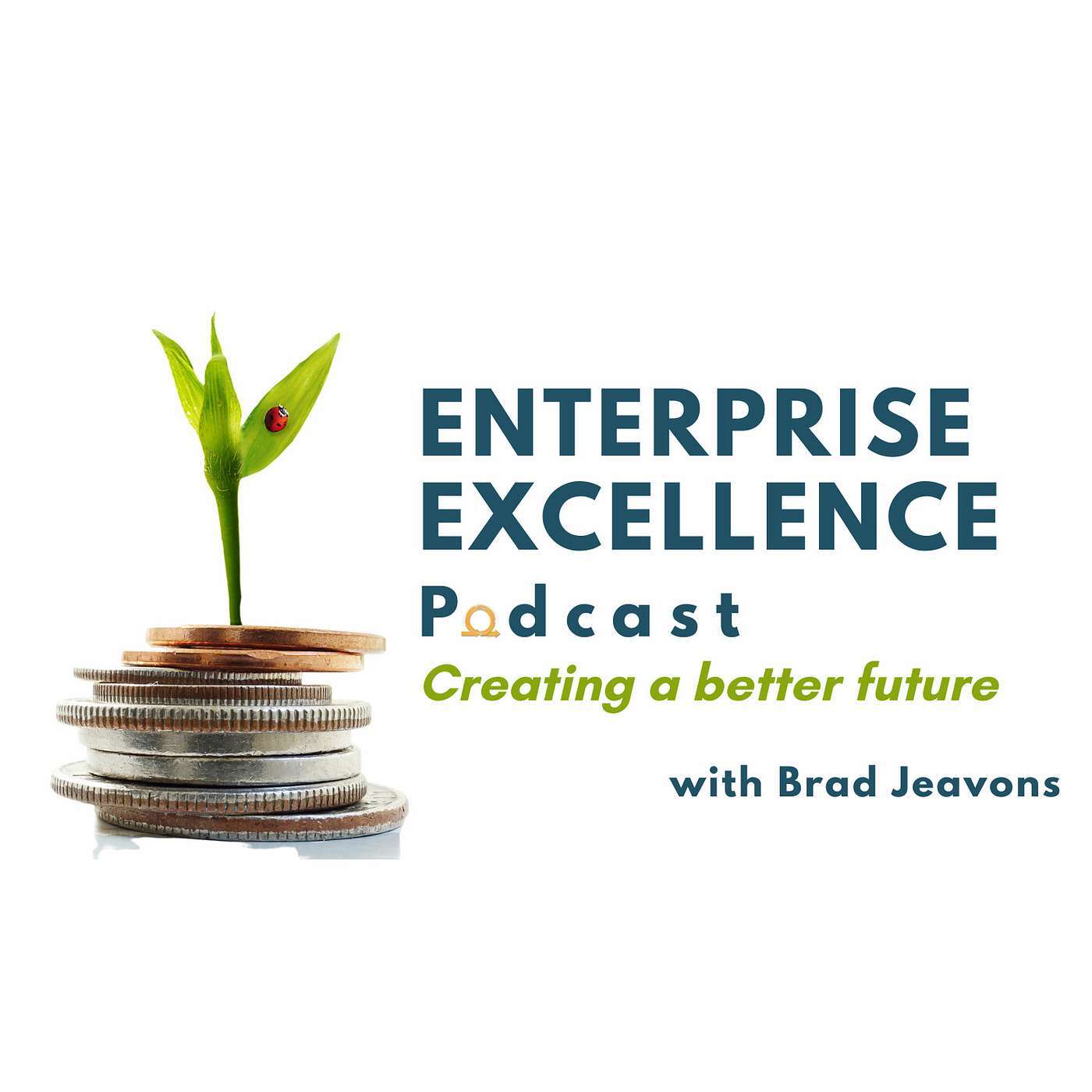
#28 Achieving Environmental Excellence through the Circular Economy with Ken Webster.
Enterprise Excellence Podcast with Brad Jeavons
• 54 min
Play episode
<b>Intro</b>
<p>Welcome to episode 28 of the Enterprise Excellence Podcast. I am so honoured to have Mr Ken Webster with me today. Ken is a leading researcher in the circular economy. Ken has been the head of innovation at the Ellen MacArthur Foundation, a leading, inspiring organisation looking at sustaining Earth's future. He is the author of "The Circular Economy a Wealth of Flows" and the book "Sense and Sustainability". Ken is currently a director for the International Society for the Circular Economy. He continues to play a large part in helping to create a better future for us all.</p>
<b>Summary</b>
<p>Ken became very dissatisfied with the questions asked, mainly of young people; accept your responsibility, be a good citizen, do the little things that count. His economic background suggested otherwise. </p>
<p>Ken speaks about the concepts in a circular economy:</p>
<ol>
<li>Nutrients - everything is food for something else</li>
<li>A shift towards renewables that are not fossil fuels based</li>
<li>Redesign materials that suit their duration of use</li>
</ol>
<p>Mr Ken Webster is genuinely a person who has helped us create a better future, and he continues to support and inspire. Thank you for such an encouraging and knowledgable conversation today Ken. </p>
<b> </b>
<b>Key Take-Aways</b>
<p> My key takeaways from this episode with Mr Ken Webster were:</p>
<ol>
<li>Design with the circular economy in mind.</li>
<li>Strategically plan to sustain value in your products in a circular economy rather than the traditional linear 'make, use, dispose' approach.</li>
<li>Measures and incentive drive behaviour</li>
</ol>
<b>Quotes</b>
<p>02:15min and as I went through this process, working with the World Wildlife Fund for Nature, I became more and more dissatisfied with what sustainability was engaged in, particularly for younger people. It looked like personal responsibility questions. It looked like be a good citizen. It looked like do little things. Well, my economics background had said, hang on, this is just, this is like asking people the wrong question and not really being worried about what they reply. Because it doesn't matter what they are going to reply, it's not going to shift the, move the dial as they say. </p>
<p>04:05min and so by Tuesday, I'd agreed to join the Ellen MacArthur Foundation because what I was able to do was to bring a synthesis of ideas around redesigning industrial systems to have a positive cycle, which is the cradle-to-cradle thing, or industrial capitalism. </p>
<p>08:05min the angle is if you use a different business model, leverage digital opportunities, you could deliver better goods and services with far less environmental cost.</p>
<p>35:22min I'm a big believer that a circular economy needs an input of tools, including land, resources, you know, like food processing, community kitchens, make-a-labs. There's a whole infrastructure to enable enterprising young people to build businesses from the base up.</p>
<p>39:26min it's really based on understanding the eco-system in which you're working.</p>
<b> </b>
<b>Links</b>
<p>Ken’s LinkedIn Profile: <a href="https://www.linkedin.com/in/ken-webster-28825110" rel="nofollow">linkedin.com/in/ken-webster-28825110</a></p>
<p>Email: <a href="mailto:ken@circulareconomy.co.uk" rel="nofollow">ken@circulareconomy.co.uk</a></p>
<p><a href="https://www.ellenmacarthurfoundation.org/" rel="nofollow">https://www.ellenmacarthurfoundation.org</a></p>
<p><a href="https://www.is4ce.org/en/" rel="nofollow">https://www.is4ce.org/en/</a></p>
<p> </p>
<p><br></p>
<p>To learn more about what we do, visit <a href="https://www.enterpriseexcellenceacademy.com/" rel="nofollow">www.enterpriseexcellenceacademy.com</a>.<br>Thanks for your time, and thanks for helping to create a better future.</p>
